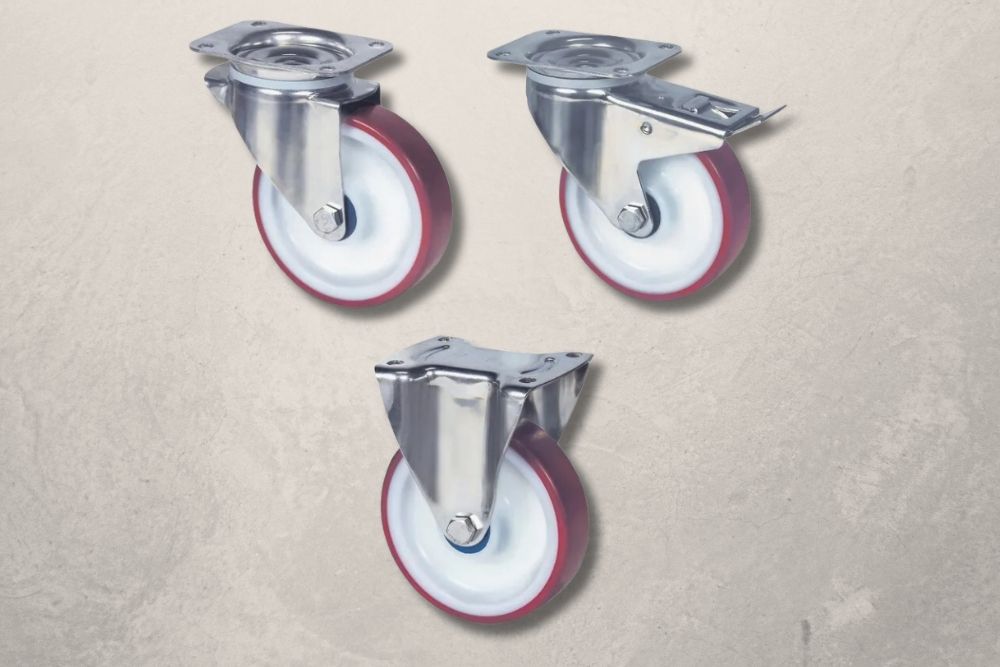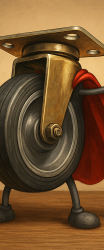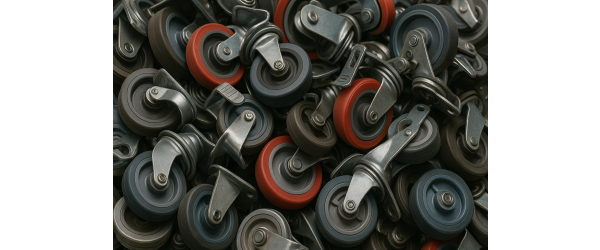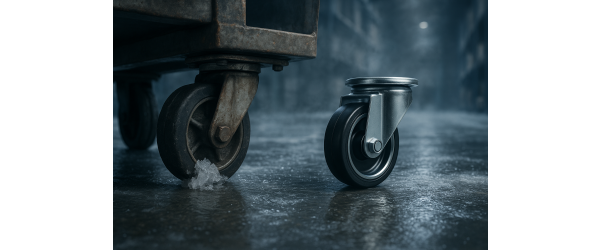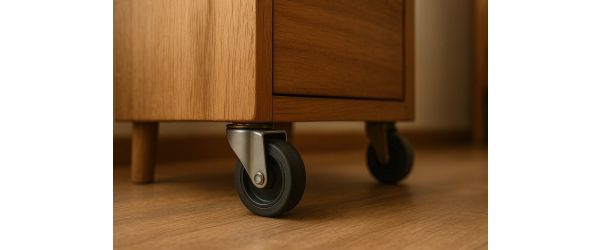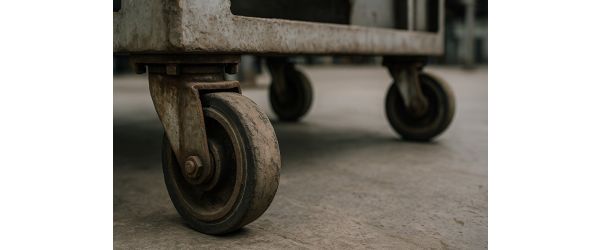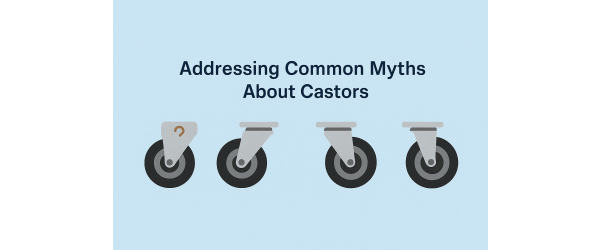When choosing castors for your equipment or furniture, one of the key decisions is whether to opt for swivel castors or fixed wheels. Each type offers distinct advantages depending on your specific needs and applications. In this blog post, we'll explore the differences between swivel castors and fixed wheels to help you make an informed decision.
Swivel Castors
- 360-Degree Rotation: Swivel castors are designed to rotate a full 360 degrees, offering maximum manoeuvrability. This flexibility allows for easy navigation around tight corners and obstacles, making swivel castors ideal for applications that require frequent changes in direction.
- Enhanced Mobility: Swivel castors enable smooth and fluid movement, reducing the effort required to transport heavy loads or equipment. They are particularly beneficial in environments where agility and versatility are essential, such as warehouses, hospitals, and retail settings.
- Versatility: Swivel castors come in various sizes and load capacities to accommodate different applications. Whether you need light-duty castors for office furniture or heavy-duty castors for industrial equipment, there's a swivel castor to suit your requirements.
Fixed Wheels
- Stability and Control: Fixed wheels provide stability and straight-line movement without the ability to rotate. They offer excellent control and are ideal for applications where precise positioning or straight-line tracking is critical, such as conveyor systems or carts that move along a designated path.
- Load Capacity: Fixed wheels often have higher load capacities compared to swivel castors of the same size and type. This makes them suitable for transporting heavy loads or equipment that requires stable support and minimal movement during operation.
- Simplicity: Fixed wheels are straightforward in design and operation, requiring less maintenance compared to swivel castors. They are durable and reliable, making them a preferred choice for applications where simplicity and robustness are prioritised.
Choosing the Right Option
- Application Considerations: Consider the specific requirements of your application. If you need enhanced manoeuvrability and flexibility, swivel castors are the preferred choice. For applications that require stability and controlled movement, fixed wheels are more suitable.
- Floor Surface: Evaluate the type of floor surface where the castors or wheels will be used. Swivel castors are versatile and perform well on various surfaces, including carpet, tile, and concrete. Fixed wheels may be more suitable for smooth surfaces where straight-line movement is necessary.
Conclusion
In conclusion, whether you opt for swivel castors or fixed wheels depends on the specific needs of your application. Understanding the advantages and considerations of each type can help you choose the right castors or wheels to enhance efficiency and productivity in your operations.
For a wide selection of swivel castors, fixed wheels, and other castor solutions, visit Castors-Online.co.uk and explore our range of high-quality products designed for durability, performance, and reliability.
